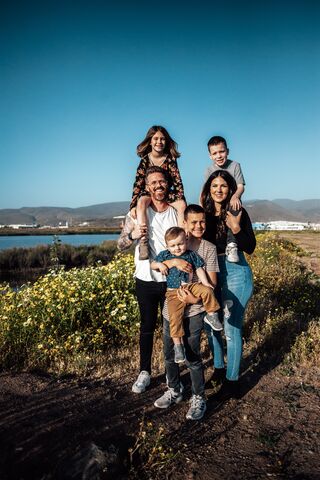Relationships
5 Ways People Can Overidentify as Parents
Common situations that strain relationships with others.
Posted October 31, 2021 Reviewed by Gary Drevitch
Key points
- Talking about kids can challenge relationships with parents and non-parents alike.
- There are common behaviors that build strains between people, whether those who are familiar or strangers.
- Building a diverse community of inclusive relationships, with both parents and non-parents, builds social capital.

Our culture elevates parenthood, so many parents may seek to accumulate social capital by relying on their kids as their go-to topic of conversation.
Here are five ways to tell if you or someone you know is at risk of over-relying on their parenthood role socially and potentially straining relationships with others, including other moms and dads.
1. You regularly ask strangers if they have kids.
While most adults ultimately become parents, one in five never will, and many others will have children in a range of ways, and so, broken down into its underlying and implied subquestions, this seemingly benign icebreaker is revealed as anything but. For example, few would directly pose intrusive questions such as these below, yet all would require an affirmative response to answer the general kid question.:
- “Did you have sex with someone or use reproductive technology?”
- “Did the baby make it to term?”
- “Did you keep it?”
- “Is the child still alive?”
Even someone who has children may be facing challenges with them. Maybe their child is estranged, suffering from mental or physical illness, or is dealing other issues they’d rather not talk about.
Let’s stop asking the kid question altogether and replace it with something less charged and more open. Like, “What’s getting your attention these days?” or some other neutral query that’s less fraught. If someone has kids, they’ll likely mention them fairly early in the conversation anyway.
2. When people don’t have kids, you want to know why.
If you expect people to have kids, you don’t quite know what to say when they don’t. You wonder whether they chose not to or couldn’t. You might even ask them directly or query people you know in common. According to research, when people find out that someone wanted kids but didn’t have them, they most often feel pity. When one learns that they decided against having children, envy and/or disdain are common reactions. Pity, envy, and disdain create distance in any relationship, and the circumstances under which someone ended up not becoming a parent aren’t your business anyway. Leave it to the other person to choose if and when they tell you that story.
3. When learning people don’t have kids, your responses include the following.
- “But you’d be such a great parent.”
- “Who will take care of you when you’re old?”
- “You’ll change your mind.”
- “Children give life meaning.”
- “You never know true love until you look into the eyes of your child.”
Ouch. Those of us who don’t have kids have heard these comments over and over again. Implied in each such response is this: Parenthood is the only way to go; anything else is a shame.
Yet no parent can know how life might unfold without having had their kids—how other sources of love can feel and what constitute sources of fulfillment. What we all share is time together on this planet, filling various roles and holding a range of aspirations. None is better, none worse. We simply have different perspectives, goals, and experiences.
4. Since becoming a parent (or grandparent), your inner friendship circles no longer include childless or childfree people.
It’s normal to share experiences with those who are similarly situated. But we also know the richness that diversity in all its forms can bring. If you’ve lost contact with people you cared about before you had kids (or grandkids), reach out. Many friendships fade when one person has kids and the other doesn’t. It takes clear intention and hard work to build and maintain connections that honor both life experiences.
Just because a friend doesn't have children, don’t screen them out of activities. Even if you worry they may be uncomfortable, invite them anyway. Make it easy for them to decline, but don’t press them for excuses. And seek out childless and childfree friends and relatives as inspiration for your own growth and sources of interests that don’t focus on the kids.
5. You talk a lot about your kids.
When you have kids, especially when you’re smitten with the people they’re becoming, you want to talk about them, the cute things they do, and what’s amiss in their lives.
There’s a fine line between sharing and monopolizing a conversation. Notice whether others are engaged. Watch the time: If you’re taking up more than your share, ask others about their interests and focus on what they have to say.
As the smaller group, those without kids are frequently talked over, left out, or ignored. Everyone deserves to be included, at home, at school, and at work.
That’s how we become more inclusive, expanding our social capital and enjoying stronger connections—with people like ourselves and those who are different.




